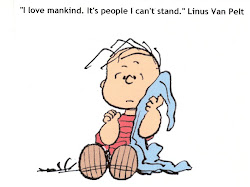Sudan is the largest country in Africa – but it may be on its way to getting smaller – or more accurately, splitting in two. The North and South have battled each other for two decades over various issues, including resources, religion and ideology. Northern Sudan is primarily Muslim, while the south is largely Christian or animist. The North is dry with a largely Arabic culture and a history tied to Egypt - much of the land was considered part of Egypt at one time. South Sudan is primarily black African.
While the conflict that ended in a peace agreement in January 2005 is often referred to as a civil war, it could be characterized more accurately as the attempt of the North to subdue and dominate the South. All the military might is held by the North and controlled through the government capital of Khartoum. Two million died in the conflicts, through systematic slaughter, starvation and disease. A full generation of Southern Sudanese has known nothing but war and suffering.
As part of a peace agreement the U.S. and other nations helped broker in 2005, South Sudan will have the opportunity to vote on January 9, 2011 whether to break away from the North or to remain as one country. Voter registration began on November 15th at more than 2,600 registration centers around the country and will last for 17 days, after which an objections and appeals process begins. A final list of voters will be published on January 4th.
The registration process had been delayed by political disputes between Sudan's ruling party in the north, the National Congress Party, and the south's Sudan People's Liberation Movement (SPLM).
All indications are that the South is hungry for independence and especially to be free from Khartoum. Most observers expect the South to vote for independence, an outcome even the U.S. government has labeled "inevitable." But it is not clear to the SPLM, or to the rest of the world for that matter, that the North will accept a separate South. There is real fear that a vote for separation will reignite the long-running state of war.
Why does the North want to hold on to the South? Military might, regime pride, and then there’s the small matter of oil. Most of Sudan’s oil reserves are found in the South. Since the 2005 peace accord, the Khartoum government has been tapping into that oil – with the help of their close friend – China. Sudan is China's largest overseas oil project. China is Sudan's largest supplier of arms. Cozy. Chinese-made tanks, fighter planes, bombers, helicopters, machine guns and rocket-propelled grenades fed Sudan's two-decade-old war.
With separation of the South, Khartoum would be forced to give up the majority of those oil reserves.
Belatedly, the looming crisis has finally caught the attention of Washington and some discussions with Khartoum to assure a smooth and peaceful transition to a two-country resolution have been held.
For its part, the government claims it wants a normal political and economic relationship with the United States. Khartoum is especially seeking ways to relieve its $39 billion debt and also lifting the standing indictment of President Omar al-Bashir. Last year, the International Criminal Court issued a warrant for the arrest of al-Bashir on charges of war crimes related to the killings in Western Sudan's Darfur region by the government-backed Janjaweed militias. The separate region of Darfur, in Sudan's west, would remain a part of the Khartoum-based north even if the South does separate.
Southern Sudan is one of the poorest regions of the world. Some 85 percent of southerners cannot read or write. Even if it achieves independence from the North, South Sudan has no shortage of challenges.
I have more than a passing interest in the future of South Sudan. In 2006 I co-founded a non-profit organization to help Sudanese, both those who immigrated to the U.S. during the years of war, and those who remain in their homeland. My co-founder, Peter, is one of the Lost Boys of Sudan who spent nearly 12 years in refugee camps before coming to the U.S. On Christmas Eve he will make his fourth trip back to South Sudan to be with his family in the Bor area during the January 9th vote, and to assist some of the primary schools that our organization supports there. If anyone is interested in learning more, or lending support to our efforts, I invite you to our website, LifeforSudan.org.
Nov. 28 P.S. This news piece talks about the ability of Sudanese in the U.S. to register for the the coming vote in South Sudan.


1 comment:
There is already trouble. Registration facilities are being targeted and violently intimidated, patients are denied treatment in Khartoum hospitals unless they agree to vote for unity.
Post a Comment